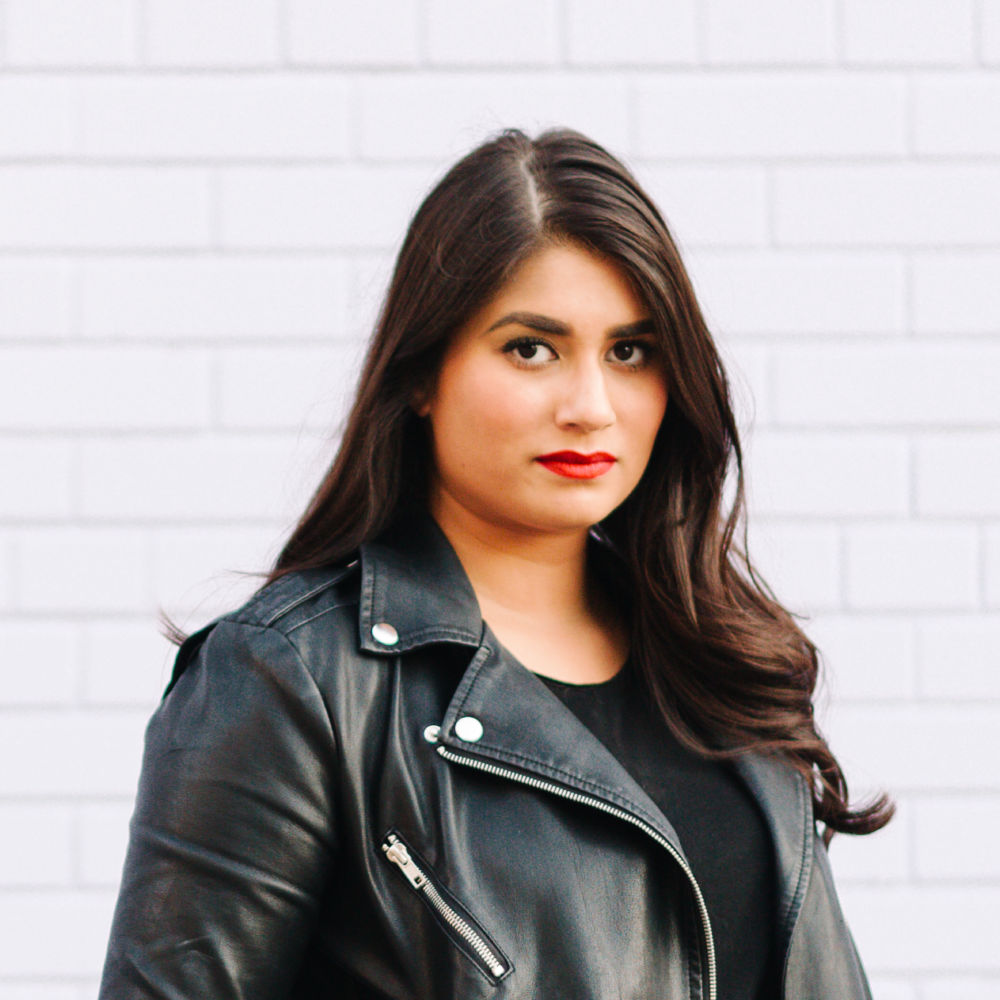Keynote Speeches
If you’re lucky, you can go through your entire life without having to correct someone when they mispronounce your name. If you’re really lucky, you won’t have to explain to them what your name means, or where it comes from. Around my first year of university something broke in me and I started to realize the amount of time and energy I put into telling people how to say my name. These interactions became exhausting. Microaggressions – the seemingly minor and brief indignities often lobbed at people of colour – are a pernicious kind of othering which collect over time and can make you feel like you’re the problem, you’re the sensitive one. Campuses are notoriously crummy for this — there’s often a “suck it up” sentiment and it can be challenging to know why something like cultural appropriation or your classmates soft mocking can be so affecting. But the problem is people get away with this behavior when they’re young, and they keep doing it as adults: That’s why you have CEOs who confuse their two black employees, or grown adults who wear racist Halloween costumes. Confronting microaggressions requires a lot of bravery, but it’s often the only way to make it stop. Designed to support students and help staff and educators create inclusive campuses, this talk provides coping skills to deal with microaggressions, what to do when you feel gaslit, and how to support your friends or students. And, if you are the person inadvertently degrading those around you, we’ll talk about how to spot a microaggression when it creeps into your head.
There’s a lie you’ll start hearing around the time you start university, that rape and sexual assault can all be explained away by how much someone had to drink. Often if you’re a woman and you’re drunk, abuse is your fault: you got drunk and you lost control and you let this happen to you. But if you’re a man and you’re drunk, it’s still somehow not your fault: so what if you had a few too many? No one should spend a lifetime punished for one night’s worth of too many jagerbombs. Party culture is the idea that young people drink too much, they’re too reckless, and that’s the reason why we have a rape “epidemic” on our hands in university and college campuses around North America. But that’s so simplistic, and barely gets at the root of the real problem.
Using examples from pop culture, current events, and gender norms on how we view sex and relationships, this talk will look at how normalized sexual assault and abuse is, namely when alcohol is involved. We see it on TV, like how Barney on How I Met Your Mother or Michael Scott on The Office get women drunk and harass them enough until they feel obligated to go on a date or more. IRL, Stanford student Brock Turner was convicted on felony assault, but only got six months of jail because he was able to convince the court that alcohol did it, not him. With this understanding, we’ll talk about what party culture actually means, looking out for your friends or keeping them honest in their actions, what a “no” looks like, how media representations of sexual assault changes our understanding of it, and what to do it if you feel helpless and manipulated. University should be fun. You should be able to go to parties and feel free and open to new experiences without the threat of being hurt in the process. And if you hurt someone, you can’t blame it on the alcohol.
I always wished, when I was in journalism school, that someone would have told me that being a journalist while also being brown and female (and lippy) would be far more complicated. My professors always talked about how there were few jobs for us and how it required incredible grit. But my teachers were white, and often male, and didn’t have a scope for the challenges that come with being a woman of colour in any industry, never mind one that requires constant creativity, social maneuvering, and patience. Anyone in a creative field, or in a space where your mental health will directly affect your productivity, knows that burning out and depression are common, if not inevitable. It’s even worse when you’re marginalized: discrimination, sexism, homophobia, transphobia all contribute to death by a thousand cuts. But how do you crawl your way out? How do you turn your burnout into something that doesn’t feel so lonely, and so isolating, and so impossible to emerge from? In this presentation, I’ll share my experiences with burnout and the ways I’ve learned to get myself out of it. The solutions vary from the necessity of having a hobby, to learning when to stop smoking or drinking or eating like a garbage disposal, to cutting shitty friends out of your life. But the core solution is the simplest and yet, the hardest to do: you have to be nicer to yourself than you would be to anyone else you know.
I Can’t Believe We’re Still Talking About This: Diversity Edition
Diversity! It’s very hot right now. Everyone seems to know that, for the most part, if you want to have a successful organization of any stripe, you need to have a diverse workforce. But while people know that they should hire a diverse pool of employees, that doesn’t mean they’re actually doing it. Excuses abound when employers have the opportunities to enact some actual staffing changes: minorities don’t apply for our jobs, women don’t ask for raises, how can I even know someone is LGBT if I don’t even get to ask them? The onus is always on the very group of people employers know they should hire. The big difference in the last decade is that workplaces went from being totally ignorant on the concept of diversity, to now lacking the skills and knowledge to actually implement it on a day to day.
Keynotes & workshops on how to boost diversity at your workplace are common but they often present deceptively simplistic solutions delivered over PowerPoint, helmed by white people who don’t look beyond hiring quotas. There simply is no ultimate ten-step program on how to institute diversity at your office, your not-for-profit, your potluck, your book club, your freelancers, your top 10%, your intern pool. Scaachi engages audiences in a more nuanced conversation on implementing diversity, offering solutions that organizations can implement tomorrow like “Let Your POC Employees Talk In Meetings,” and “Have An Actual HR Department And Not A Box For Anonymous Office Complaints” and “Pay A Fair Wage”. In all seriousness, these seemingly basic and often overlooked factors contribute most to improving diversity and creating a more positive workplace for employees.
Diversity! It’s very hot right now. Everyone seems to know that, for the most part, if you want to have a successful organization of any stripe, you need to have a diverse workforce. But while people know that they should hire a diverse pool of employees, that doesn’t mean they’re actually doing it. Excuses abound when employers have the opportunities to enact some actual staffing changes: minorities don’t apply for our jobs, women don’t ask for raises, how can I even know someone is LGBT if I don’t even get to ask them? The onus is always on the very group of people employers know they should hire. The big difference in the last decade is that workplaces went from being totally ignorant on the concept of diversity, to now lacking the skills and knowledge to actually implement it on a day to day.
Keynotes & workshops on how to boost diversity at your workplace are common but they often present deceptively simplistic solutions delivered over PowerPoint, helmed by white people who don’t look beyond hiring quotas. There simply is no ultimate ten-step program on how to institute diversity at your office, your not-for-profit, your potluck, your book club, your freelancers, your top 10%, your intern pool. Scaachi engages audiences in a more nuanced conversation on implementing diversity, offering solutions that organizations can implement tomorrow like “Let Your POC Employees Talk In Meetings,” and “Have An Actual HR Department And Not A Box For Anonymous Office Complaints” and “Pay A Fair Wage”. In all seriousness, these seemingly basic and often overlooked factors contribute most to improving diversity and creating a more positive workplace for employees.







Similar
Speakers